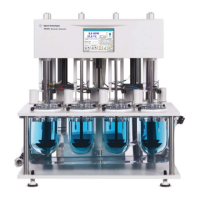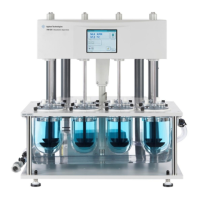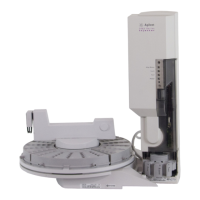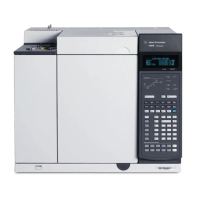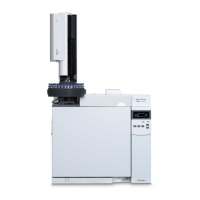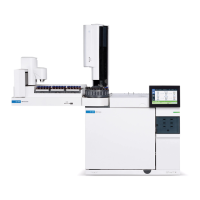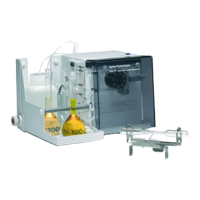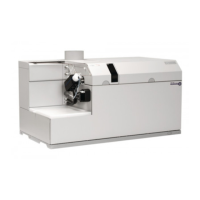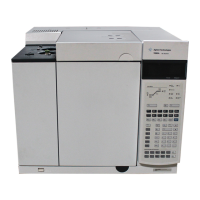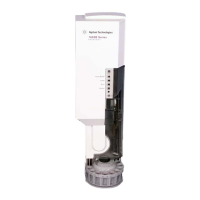1Introduction
Hydrogen accumulation in an MS
22 7000/7010 Series TQ GC/MS Operating Manual
• Accumulation of hydrogen in the GC oven and subsequent combustion. See
your GC documentation and the label on the top edge of the GC oven door.
• Accumulation of hydrogen in the MS and subsequent combustion
Hydrogen accumulation in an MS
All users should be aware of the mechanisms by which hydrogen can
accumulate, and know what precautions to take if they are certain or suspect
that hydrogen has accumulated. (See Table 2.) Note that these mechanisms
apply to all MSs.
The MS cannot detect leaks in inlet or detector gas streams. For this reason, it
is vital that column fittings should always be either connected to a column or
have a cap or plug installed.
The MS cannot detect leaks in the valves for the optional JetClean system. It
is possible that hydrogen can leak into the MS from this cleaning system.
Always turn off the JetClean system and close the manual hydrogen shutoff
valve to the JetClean MFC and ensure good vacuum before venting the MS.
Table 2 Hydrogen accumulation mechanisms
Mechanism Results
MS turned off A MS can be shut down deliberately. It can also be shut down accidentally by an internal or
external failure. A MS shutdown does not shut off the flow of carrier gas. As a result,
hydrogen may slowly accumulate in the MS.
MS automated shutoff
valves closed
The MSs are equipped with automated shutoff valves for the calibration vial, optional
JetClean system, and the reagent gases. Deliberate operator action or various failures can
cause the shutoff valves to close. Shutoff valve closure does not shut off the flow of carrier
gas. As a result, hydrogen may slowly accumulate in the MS.
GC off A GC can be shut down deliberately. It can also be shut down accidentally by an internal or
external failure. Different GCs react in different ways. If an 8890/9000/7890 Series GC
equipped with Electronic Pressure Control (EPC) is shut off, the EPC stops the flow of carrier
gas. If the carrier flow is not under EPC control, the flow increases to its maximum. This flow
may be more than some MSs can pump away, resulting in the accumulation of hydrogen in
the MS. If the MS is shut off at the same time, the accumulation can be fairly rapid.
Power failure If the power fails, both the GC and MS shut down. The flow of carrier gas, however, is not
necessarily shut down. As described previously, in some GCs a power failure may cause the
carrier gas flow to be set to maximum. As a result, hydrogen may accumulate in the MS.

